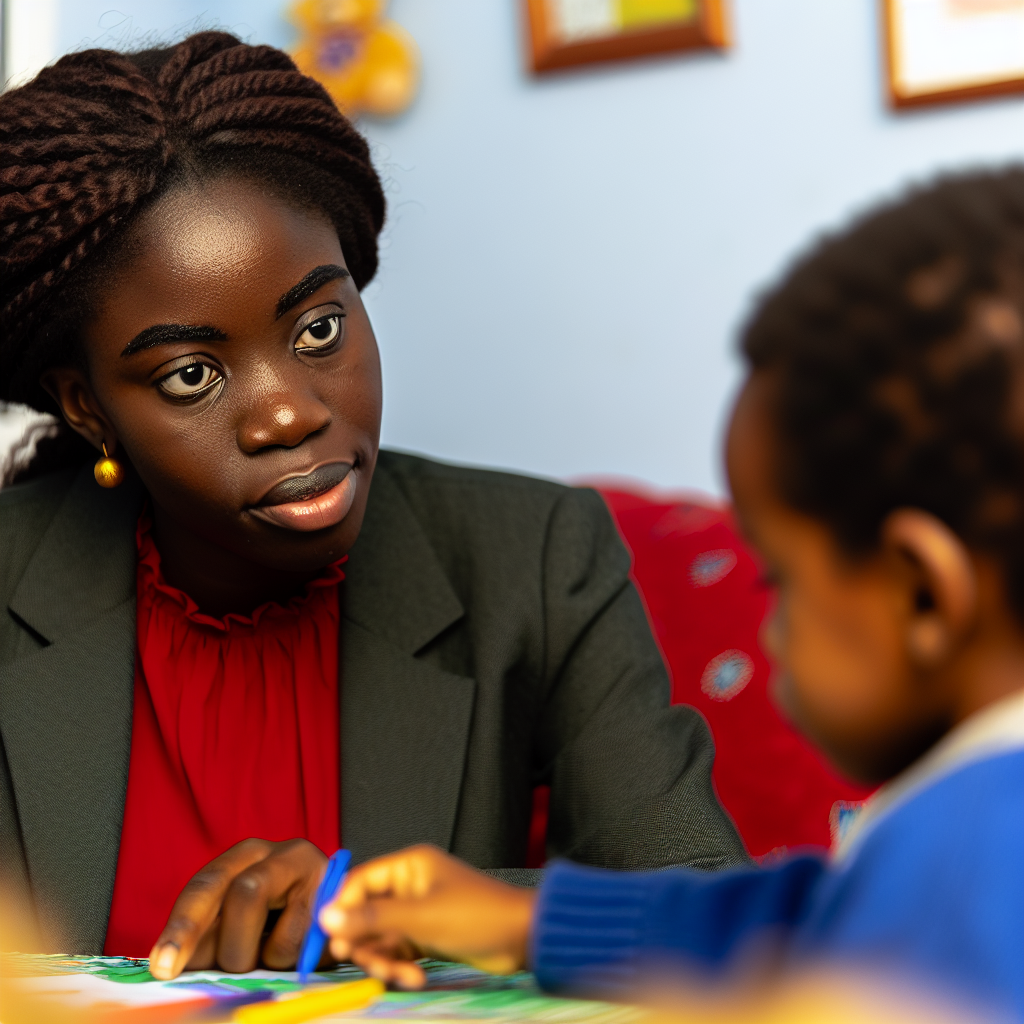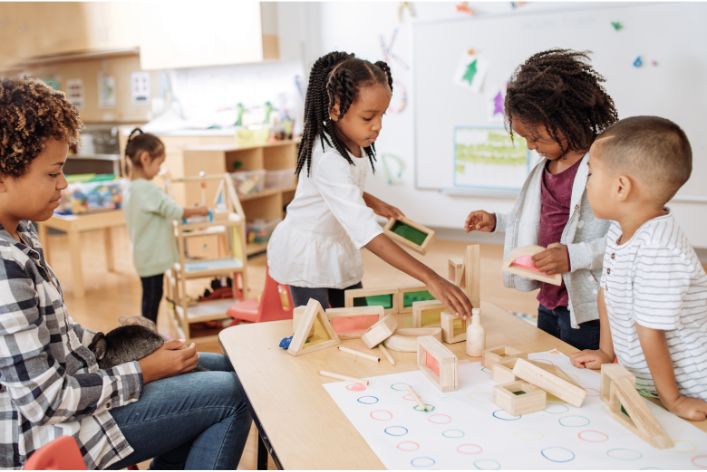Introduction to Emotional and Social Development in Children
Emotional and social development plays a vital role in children’s growth.
In Nigeria, children’s experiences shape their emotional and social skills.
Recognizing key milestones helps parents and educators support development.
Understanding these milestones requires observing children’s behavior closely.
Emotional development includes recognizing one’s feelings and expressing them appropriately.
Social development focuses on how children interact with peers and adults.
Importance of Emotional Milestones
Emotional milestones are crucial for children’s overall well-being.
These milestones help children manage stress and build resilience.
Parents should encourage emotional expression to promote healthy emotions.
For example, children who can identify their feelings often cope better.
Moreover, recognizing emotions in others fosters empathy and social ties.
Key Social Milestones
Social milestones guide children’s interactions and relationships.
Taking turns and sharing are foundational skills in early years.
Playing with peers is essential for developing social competence.
Through play, children learn negotiation and conflict resolution skills.
Parenting Made Just for You
Get personalized Parenting Solutions tailored to your child’s needs. Transform your parenting journey with expert guidance in 1-3 days.
Get StartedChildren also begin to form friendships, which enhance their social confidence.
Cultural Influences on Development
Cultural values significantly shape emotional and social growth in Nigerian children.
Family and community play a central role in teaching social norms.
Traditions often dictate how emotions are expressed and understood.
For instance, communal gatherings reinforce social bonds among children.
Moreover, storytelling in Nigerian culture teaches emotional resilience.
Supporting Development at Home and School
Parents and educators must work together to support children’s growth.
Regular conversations about feelings can improve emotional literacy.
Activities like role-playing help children navigate social situations.
Furthermore, creating a safe environment encourages healthy emotional expression.
In schools, programs that promote social skills are vital for student success.
Importance of Recognizing Milestones in Nigerian Cultural Context
Recognizing emotional and social milestones influences child development significantly.
In Nigeria, cultural values shape children’s growth and emotional well-being.
Families play a crucial role in supporting children through developmental stages.
Unveil the Perfect Name that Tells Your Family's Story
Let us help you find a name that embodies your family's values, traditions, and dreams. Our personalized consultation weaves cultural insights to create a name that's uniquely yours.
Get StartedAcknowledging milestones helps parents understand their child’s needs.
This understanding fosters better emotional bonding within families.
Understanding Cultural Differences
Nigeria has diverse ethnic groups, each with unique developmental expectations.
Different regions may emphasize different milestones based on customs.
This diversity enriches the experience of child-rearing.
Families should embrace and celebrate their unique heritage.
Strengthening Community Support
Community involvement enhances the recognition of children’s milestones.
Social gatherings provide opportunities for families to share experiences.
These gatherings create a support network for parents.
As a result, communities foster children’s social development.
Informing Educational Practices
Schools should incorporate cultural understanding into their curricula.
Teachers can recognize and respect varying milestones among students.
This approach creates an inclusive learning environment.
Furthermore, it improves student engagement and performance.
Key Emotional Milestones: Age-Specific Expectations
Infancy: Birth to 1 Year
In the first year, infants develop strong attachments to caregivers.
They communicate through crying, cooing, and gazing.
By six months, they often exhibit smiling and laughter.
Social interactions include responding to their name and familiar faces.
Toddlerhood: 1 to 3 Years
Toddlers express a wide range of emotions more distinctly.
They begin to understand basic social cues from adults.
At this stage, children enjoy parallel play with peers.
Sharing and taking turns may begin but is often challenging.
Emotional tantrums can occur when they feel frustrated.
Preschool Age: 3 to 5 Years
Preschoolers start to develop empathy towards others’ feelings.
They can express emotions verbally, labeling feelings accurately.
This age group engages in cooperative play with friends.
Friendships become more meaningful and emotionally significant.
Additionally, they begin to understand rules in social contexts.
Middle Childhood: 6 to 12 Years
During middle childhood, children form deeper relationships.
They understand complex emotional concepts like guilt and pride.
Problem-solving skills in social situations start to emerge.
Conflict resolution becomes an important focus for this age.
Children also seek acceptance and validation from peers.
Adolescence: 13 to 19 Years
Adolescents grapple with identity and self-esteem issues.
Peer influence significantly impacts their emotional experiences.
This period includes navigating romantic relationships.
They often express a desire for independence from family.
Communicating feelings can become more complex during this time.
Find Out More: How to Recognize and Support Delayed Milestones in Nigerian Children
Understanding Peer Relationships and Interactions
Importance of Peer Relationships
Peer relationships play a vital role in children’s social development.
They help children learn to communicate effectively.
Moreover, these relationships foster a sense of belonging.
Through interactions, children develop essential social skills.
With friends, they explore emotions and navigate complex situations.
Stages of Social Interaction
Children’s interactions evolve as they grow older.
During the early years, solitary play is common.
As they reach preschool age, parallel play becomes more evident.
In this phase, children play side by side but do not interact.
Eventually, cooperative play emerges, allowing collaboration with peers.
Recognizing Social Milestones
Parents and educators should be aware of key social milestones.
For instance, sharing and taking turns are significant signs of development.
At around age three, children begin to show empathy towards others.
By age five, they often have established friendships with peers.
These connections are crucial for emotional regulation.
Cultural Influences on Social Development
Cultural context shapes how children form peer relationships.
Nigerian children, for instance, often learn from community interactions.
Family and societal expectations influence social behaviors.
Respect for elders and cooperation is emphasized in many cultures.
This cultural foundation impacts children’s friendships and interactions.
Encouraging Healthy Peer Interactions
Encouraging healthy interactions is essential for child development.
Parents can facilitate playdates to nurture friendships.
Moreover, teaching conflict resolution skills is beneficial.
Engaging children in group activities fosters teamwork skills.
By modeling positive interactions, adults can guide children’s behavior.
Uncover the Details: Understanding Cognitive Development Milestones in Nigerian Children
Cultural Influences on Emotional and Social Development in Nigeria
Traditional Family Structures
Nigerian families often operate within extended family systems.
These structures contribute to children’s social learning and emotional support.
Children grow up surrounded by a network of relatives.
This network offers guidance and nurturance.
Consequently, they learn early the values of cooperation and respect.
Community Engagement
Communities play a vital role in raising children in Nigeria.
Local customs and communal responsibilities shape emotional growth.
Children engage in various activities with peers and adults alike.
This engagement fosters a sense of belonging and identity.
Moreover, participation in community events enhances social skills.
Educational Practices
Formal education also influences children’s emotional and social development.
Schools serve as environments for social interaction and learning.
Nigerian educators focus on both academic and character development.
Through group activities, children develop teamwork skills.
These practices promote positive relationships among peers.
Religious Beliefs and Values
Religion is a significant aspect of Nigerian culture.
It often shapes moral values and emotional understanding.
Families engage children in religious practices from an early age.
This engagement helps instill values such as compassion and empathy.
Consequently, children learn to form meaningful connections with others.
Impact of Socioeconomic Factors
Socioeconomic status can affect emotional and social development.
Access to resources varies significantly across different regions.
Wealthier families may offer more opportunities for socialization.
On the other hand, impoverished children may face social challenges.
This disparity can influence their emotional resilience and social skills.
Delve into the Subject: Tracking and Supporting Nigerian Children’s Growth Milestones Effectively

Signs of Delayed Emotional and Social Milestones
Understanding Emotional Development
Emotional development is vital for children’s overall health.
It helps them express feelings and form relationships.
Awareness of milestones can guide parents in supporting their children.
Indicators of Delayed Emotional Milestones
Watch for difficulty in expressing emotions appropriately.
Children may exhibit extreme emotional reactions regularly.
They might not show interest in social interactions with peers.
Additionally, prolonged sadness or irritability can be worrying.
Signs of Social Milestones Delays
Social engagement is essential for a child’s development.
Delayed social milestones may include difficulty making friends.
Children may also struggle with sharing and taking turns.
Furthermore, signs of withdrawal from social situations warrant attention.
Practical Steps for Parents
First, observe your child’s behavior in different settings.
Regularly discuss their emotions and social interactions.
Encourage playdates to foster social skills.
Lastly, consider seeking advice from professionals if concerns arise.
Find Out More: Key Developmental Milestones for Nigerian Babies and Kids
Strategies for Supporting Emotional and Social Growth in Nigerian Children
Building Strong Relationships
Children thrive in nurturing environments with strong relationships.
Encourage parents to engage actively with their children.
Frequent communication fosters connections and emotional security.
Additionally, open dialogues help children express their feelings.
Encourage family bonding through shared activities.
Supportive relationships enhance social skills development.
Promoting Emotional Literacy
Teach children to identify and express their emotions accurately.
Utilize books and stories that depict diverse emotional experiences.
Discuss characters’ feelings and decisions during reading sessions.
Role-playing different emotions can be very beneficial.
These activities foster understanding and empathy among peers.
Encouraging Social Interaction
Facilitate opportunities for children to interact with their peers.
Organize group activities that require teamwork and cooperation.
These activities build communication and interpersonal skills.
Encourage participation in community events and gatherings.
Such experiences broaden social horizons and networks.
Implementing Positive Discipline Techniques
Use positive reinforcement to encourage desired behaviors.
Avoid punitive measures that may harm emotional development.
Focus on teaching appropriate responses to challenging situations.
Guide children in understanding the consequences of their actions.
This approach cultivates accountability and self-regulation.
Creating a Safe Emotional Environment
Establishing a safe space for emotional expression is essential.
Encourage children to share their thoughts without fear of judgment.
Validate their feelings and provide comfort during distress.
Teach coping strategies for managing overwhelming emotions.
A supportive environment strengthens resilience and confidence.
Involving Parents and Caregivers
Engage parents in workshops on emotional and social growth.
Provide resources to help them understand their child’s development.
Encourage parents to model positive emotional behaviors.
This modeling allows children to learn effectively.
Create support groups for caregivers to share experiences.
These groups foster community and shared learning.
Role of Schools and Communities in Promoting Emotional and Social Well-Being
Importance of Collaboration
Collaboration between schools and communities is essential for promoting well-being.
When both entities work together, they can create a supportive environment for children.
This partnership fosters a sense of belonging and community.
Furthermore, it enhances emotional resilience and social skills among children.
Schools as Safe Spaces
Schools should serve as safe and nurturing spaces for children.
Educators must be trained to recognize emotional and social needs.
Regular support groups can encourage open conversations about feelings.
Additionally, a curriculum focused on social-emotional learning enhances understanding.
Community Involvement
Community members play a vital role in children’s development.
Local organizations can provide resources and workshops for parents.
Moreover, mentorship programs can connect children with positive role models.
Creating recreational spaces promotes social interaction and teamwork.
Monitoring Progress
Schools and communities should establish methods to monitor emotional health.
Regular assessments can help identify students needing additional support.
These assessments ensure timely interventions are in place.
Moreover, feedback from families can guide improvements in programs.
Celebrating Milestones
Recognizing and celebrating children’s milestones is crucial.
Schools can organize events that honor achievements and progress.
Community events that highlight success stories promote encouragement.
This practice reinforces positive behaviors and emotional health.
Additional Resources
Charting infant development: Milestones along the way.
The Cost-Effectiveness of an Accelerated Learning Program on the …




